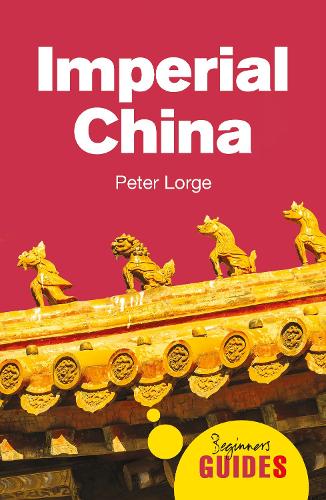
Imperial China: A Beginner's Guide
(Paperback)
Publishing Details
Imperial China: A Beginner's Guide
By (Author) Dr. Peter Lorge
Oneworld Publications
Oneworld Publications
28th September 2021
1st July 2021
United Kingdom
Classifications
General
Non Fiction
Social and cultural history
951.01
Physical Properties
Paperback
208
Width 129mm, Height 198mm, Spine 12mm
Description
A comprehensive and engaging guide to Imperial China Imperial China, dating from the Qin conquest of China in 221 BCE until the final abdication of the last Qing emperor on 12 February 1912, maintained many consistent threads over its two millennia but was neither static nor unchanging. This introduction will examine both the changes and the consistencies of imperial Chinese history, spanning centuries and dynasties to examine what was characteristic of this period. The contradictions and tensions inherent in the imperial system were solved in some periods before subsequent changes undermined that solution. Yet the history of imperial China remains important because many of those tensions remain until this day.
Reviews
In short, fast-paced chapters, Peter Lorge provides a fresh look at key elements of Chinas imperial past. He invites the reader to ponder what we mean by China, how to understand dynasty, and whether sources written in literary Chinese overstate unity and continuity and underplay law, the military, and openness to new ideas.
-- Patricia Buckley Ebrey, Professor of History Emeritus, University of Washington, and author of The Cambridge Illustrated History of ChinaA compact but engaging exposition of imperial China over the course of its 2,000-year history. Both accessible and informative, this book challenges a series of commonly held assumptions and reveals the complexity and incredible diversity of the Chinese world.
-- Imre Galambos, Reader in Chinese Studies, University of CambridgeAuthor Bio
Peter Lorgeis Associate Professor of Asian Studies at Vanderbilt University. He is a historian of tenth- and eleventh-century China, with a particular interest in Chinese military, political and social history. His previous books include Chinese Martial Arts: From Antiquity to the Twenty-First Centuryand The Asian Military Revolution.
